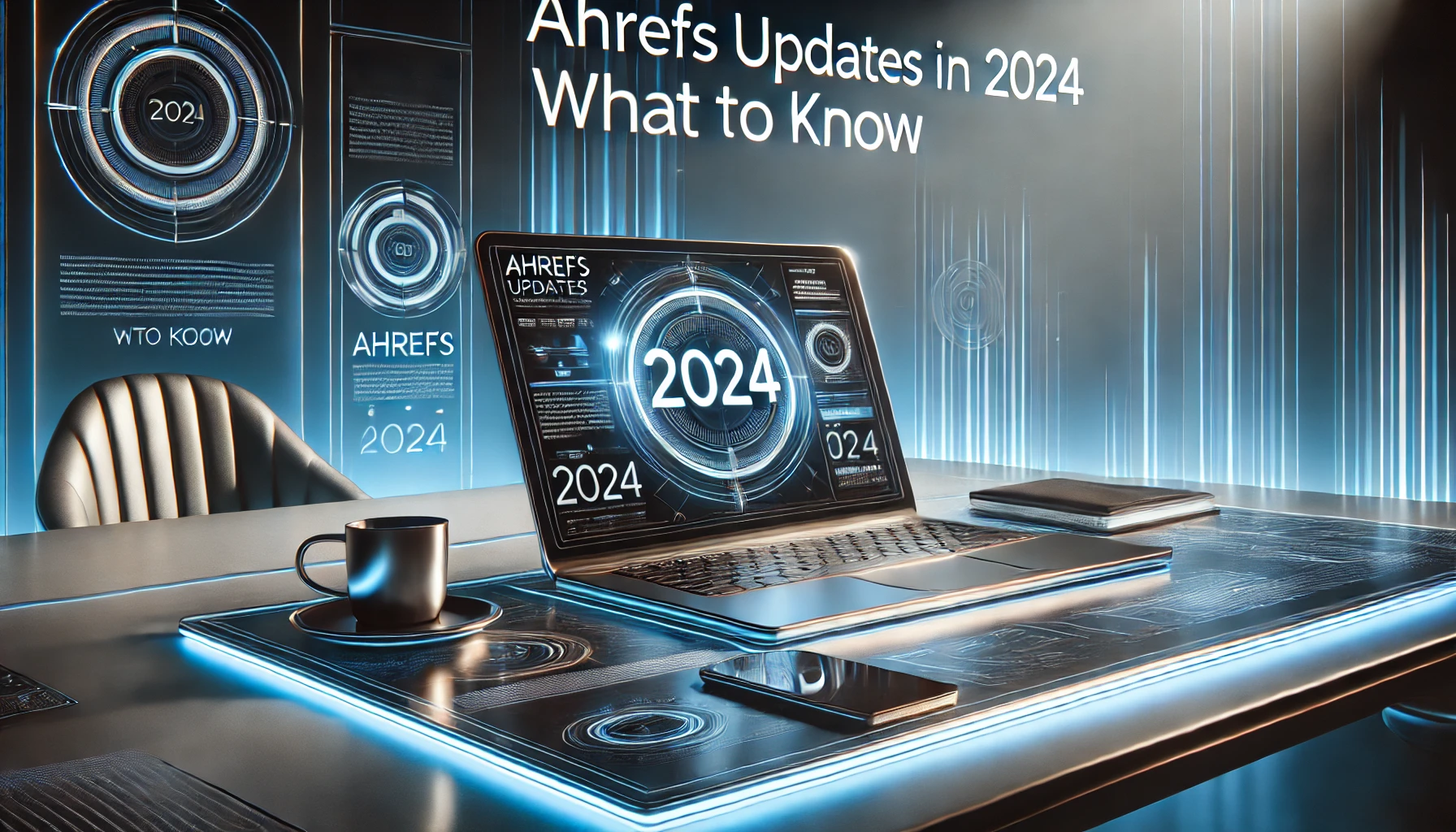
Ahrefs has been at the forefront of SEO innovation for years, and in 2024, the platform introduced several groundbreaking updates to empower marketers, SEO professionals, and businesses. This year’s changes revolved heavily around AI integration, enhanced data visualization, and better tools for competitor analysis and content strategy development. With the constant evolution of search engine algorithms and user behaviors, it’s clear that Ahrefs is investing significant time and resources into making the tool useful for a GEO future and the shifting SEO monitoring tool needs of industry profs.
But beyond just technical upgrades, 2024 has been a pivotal year for SEO overall. Search engines are increasingly prioritizing user intent, relevance, and high-quality content that matches specific audience needs. Google’s continued rollout of Multimodal Search and improvements in its AI-powered features, such as Bard and MUM (Multitask Unified Model), have pushed marketers to rethink their strategies. As 2025 approaches, SEO trends are leaning even more heavily toward automation, real-time insights, and hyper-localized content delivery.
Ahrefs’ updates this year reflect these broader shifts and prepare users to navigate challenges like real-time SERP volatility, localized keyword competition, and the growing demand for actionable insights from massive datasets. Let’s dive deeper into the key updates that made waves in 2024.
Ahrefs began the year by introducing a game-changing AI feature for search intent analysis. Beyond simply tagging keywords as “informational” or “transactional,” this tool offers nuanced insights into user intent. This depth allows users to target overlapping intents or uncover gaps in competitor content strategies.
The new “Linking Authors” report identifies individuals linking to your content, complete with metrics like Domain Rating (DR) and traffic. This feature enables PR teams and marketers to develop relationships with influential authors, expanding opportunities for partnerships and outreach campaigns.
Ahrefs launched its AI Content Grader to help enterprises refine their content. By analyzing top-ranking articles for a keyword, the tool offers suggestions to improve comprehensiveness and align with ranking factors.
This calendar view visualizes the daily changes in new and lost backlinks. By adding filters for “best links,” users can focus on tracking critical links that may impact their rankings significantly.
Localization is becoming increasingly important, and Ahrefs’ AI translations allow users to translate keyword lists into different languages and dialects with precision. This ensures that campaigns are effective across global audiences.
The AI Content Helper analyzes competitor data to recommend optimized titles, headings, and meta descriptions. Meanwhile, the customizable Report Builder gives users the ability to create detailed, client-ready reports using widgets from across Ahrefs’ ecosystem.
AI-generated summaries in the SERP Overview section streamline analysis by providing concise descriptions of ranking pages and their performance metrics, enabling users to make quicker decisions.
SEO has become more dynamic than ever, with search engines constantly updating their algorithms and tools. Looking ahead to 2025, some key trends are expected to dominate the landscape:
Ahrefs’ updates align with these trends, offering solutions for automation, localization, and intent-driven content creation.
Adam Hausman has worked with ChangeTower since its founding in 2018 and is passionate about the potential of website monitoring software in industries including SEO, compliance monitoring, competitive intelligence, and more. Also founder of Greenlight Growth Marketing, he holds degrees from Indiana University (BA English/Psychology 2008) and the University of Illinois-Chicago (M.Ed. Secondary Education 2012). He lives in Maine with his wife, 2 kids, and 2 annoying cats.
| Cookie | Duration | Description |
|---|---|---|
| cookielawinfo-checkbox-analytics | 11 months | This cookie is set by GDPR Cookie Consent plugin. The cookie is used to store the user consent for the cookies in the category "Analytics". |
| cookielawinfo-checkbox-functional | 11 months | The cookie is set by GDPR cookie consent to record the user consent for the cookies in the category "Functional". |
| cookielawinfo-checkbox-necessary | 11 months | This cookie is set by GDPR Cookie Consent plugin. The cookies is used to store the user consent for the cookies in the category "Necessary". |
| cookielawinfo-checkbox-others | 11 months | This cookie is set by GDPR Cookie Consent plugin. The cookie is used to store the user consent for the cookies in the category "Other. |
| cookielawinfo-checkbox-performance | 11 months | This cookie is set by GDPR Cookie Consent plugin. The cookie is used to store the user consent for the cookies in the category "Performance". |
| viewed_cookie_policy | 11 months | The cookie is set by the GDPR Cookie Consent plugin and is used to store whether or not user has consented to the use of cookies. It does not store any personal data. |
Adam Hausman